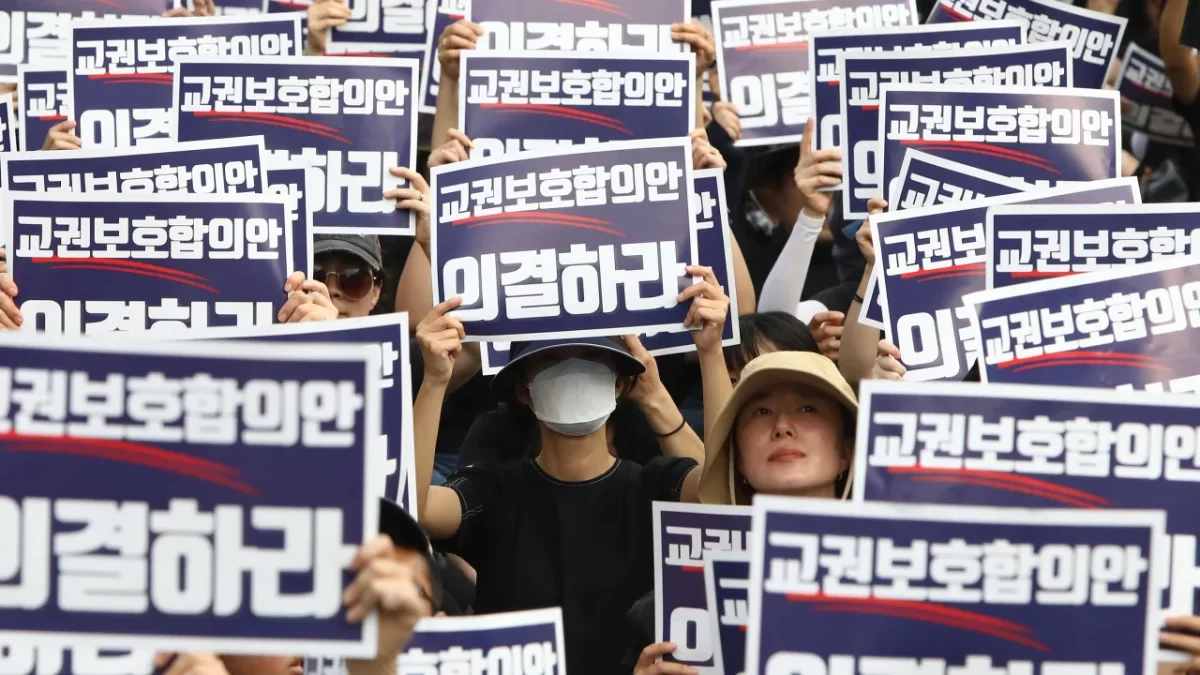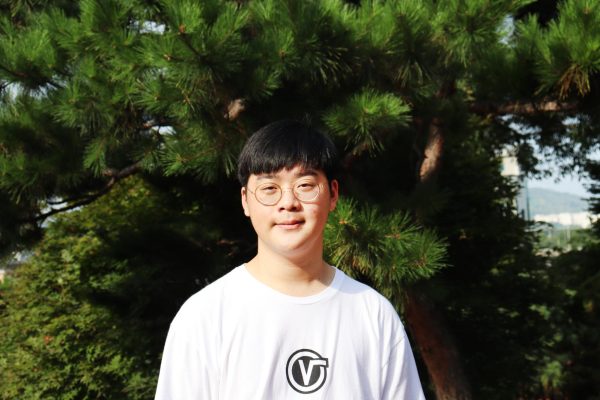An estimated 10,000 teachers in black outfits gathered in front of the National Assembly to participate in the protest on Sept. 4, otherwise known as “The day public education stops” to commemorate the teacher from Seo2 Elementary School who committed suicide and to advocate for better teachers’ rights in South Korea.
The protests were aimed toward the government and its failure to adequately protect teachers when dealing with unruly students and complaints from parents in Korean public schools, so the protests did not significantly impact international schools nor their perception. It is possible that since international schools are highly selective and not directly under the Korean government’s regulations, the process of protecting teachers’ rights is less meticulous.
“We don’t want to get sucked into this broader cultural conversation of what’s going on out there where we see pieces of that,” Gray Macklin, High School Principal, said. “We have an enormous amount of control, and I think we should continue to exert it to be a positive place.”
To participate in the protest, teachers used their sick leave or paid leave despite mixed responses from the Ministry of Education which initially stated potential punishments for teachers who participated in the protest, but later switched sides by stating there will be no retaliation to the teachers.
“It is good that the teachers are voicing their opinions and not being oppressed, “ Eddie Chu (12), Amnesty International club president, said. “I feel like we need laws that allow teachers to give justification and defend themselves. There needs to be a reform in the education system.”
The protests did not stem solely from the suicide of the Seo2 Elementary School teacher; rather, it can be considered a tipping point of the accumulated woes of public school teachers’ diminishing educational authorities. Government data shows 100 public school teachers committed suicide from June 2018 to June 2023.
The status quo in Korean public schools is that children and their parents have more “authority” over the teachers, even in the classroom. Some say this is due to the diminishing influence of Confucian culture of respecting teachers, leading to a mindset that the parents “own” the teachers as they pay their salary with taxes.
The current lawsuit system also favors the plaintiff significantly: the police work under the assumption that the defendant committed a crime, even if there is no evidence suggesting a crime was committed. Even if the defendant is found not guilty, the plaintiff is not punished in any way, yet the defendant does not get any support or compensation for lost time and money.
This led to some parents working under the assumption that they control the teachers, and teachers minimizing contact with students entirely so that they avoid malicious complaints. According to a survey by the Korean Federation of Teachers’ Associations (KFTA), 57.8% of respondents stated “threat to sue for child abuse and file malicious complaints” as their main breach of educational authority.
Only recently did the Ministry of Education set up preventative measures. During the press conference for “Comprehensive measures to protect educational activities” on Sept. 20, the Seoul Office of Education announced a 24/7 chat bot service which records all calls to schools and assigns a lawyer to each school, visitor pass system to visit schools, and more resources to help teachers who were sued. The only caveat is that these measures are only for elementary schools in Seoul, bearing limitations for other schools in Korea.
Some say the proportion of entitled parents is not significant enough to warrant a change in the educational system. Others argue a need for reform in not just the education system, but a cultural change of mindset of “society’s narrow definition of success.” However, as another survey by the KFTA indicate less than 25% of teachers being satisfied with their current job, there is a possible need to rethink how education should be perceived to block implications of a collapse in the public education system as fewer qualified people desire to become teachers, and more rely on hagwons for their education.
“Compared to the 90s, teachers have lost much of their educational authority,” Jason Baek (12), MUN Vice President, said. “There is a perception that public school teachers should just give the students good grades since students go to hagwons anyway to study. There needs to be a balance between that so public school teachers are not devalued, and can maintain their authority.”


